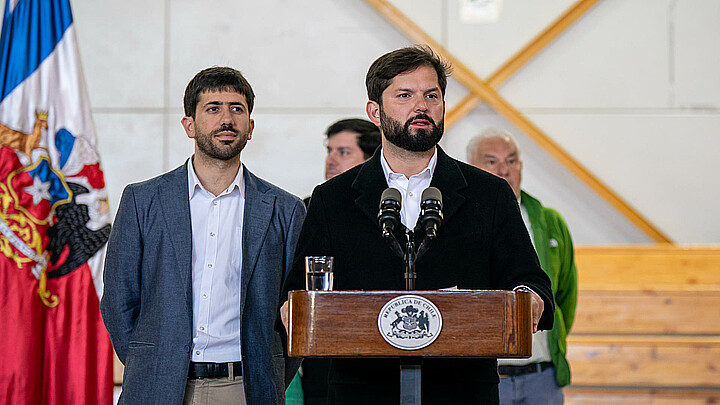Politics
Chilean currency, assets in a free-fall after left-wing presidential victory
The peso’s steep fall — now down nearly 20 percent — began more than half a year ago when Chileans voted to change the country’s market-friendly constitution in May
December 20, 2021 3:26pm
Updated: December 24, 2021 1:23am
Chile's currency, the peso, fell two percent and the country’s dollar-denominated stock index dropped 10 percent after anti-market Gabriel Boric bested Jose Antonio Kast – a staunch defender of law and order and free markets – in the Chilean presidential elections on Sunday.
The peso’s steep fall — now down nearly 20 percent — began more than half a year ago when Chileans voted to change the country’s market-friendly constitution in May.
Markets have reacted to the danger of a constitutional assembly that is dominated by leftist and independent representatives who have pledged to erase all remaining vestiges of Chile’s free-market economic model, which was introduced during the military government of General Augusto Pinochet, Reuters reported.
The model, designed by University of Chicago trained economists, was once lauded for its rapid growth rate and the speedy eradication of poverty and is widely considered to have brought about Chile’s “economic miracle.”
Boric, however, has promised to enact further reforms — focusing instead on strengthening environmental protections and indigenous rights. He has also promised to dismantle Chile's prolific private pension system.
"While Boric has taken pains to stress that his economic model will not be a radical one, it's clear that the market-friendly policies are likely a thing of the past,” said Win Thin, global head of currency strategy at Brown Brothers Harriman in New York.
"Along with the planned re-writing of its Constitution, Chile is moving on to a new path with an unknown destination. The wide margin of victory may give Boric more confidence to push a more left-wing agenda but only time will tell. Markets hate uncertainty and Chile is offering years of it," he added.
Boric’s administration is also expected to raise corporate taxes while sticking to the budget passed by Chile's Congress this year. This has led some economists to project that the government’s expenditures could drop by some 22.5 percent in the next year.
JPMorgan economist Diego Pereira believes the near-term challenge will be to moderate the political agenda “in a credible manner so as to prevent adverse financial conditions.” If not, he warned, the risk scenario is “protracted capital flight,” adding that if uncertainty remains for key industries like mining, it could see companies delay investment.








